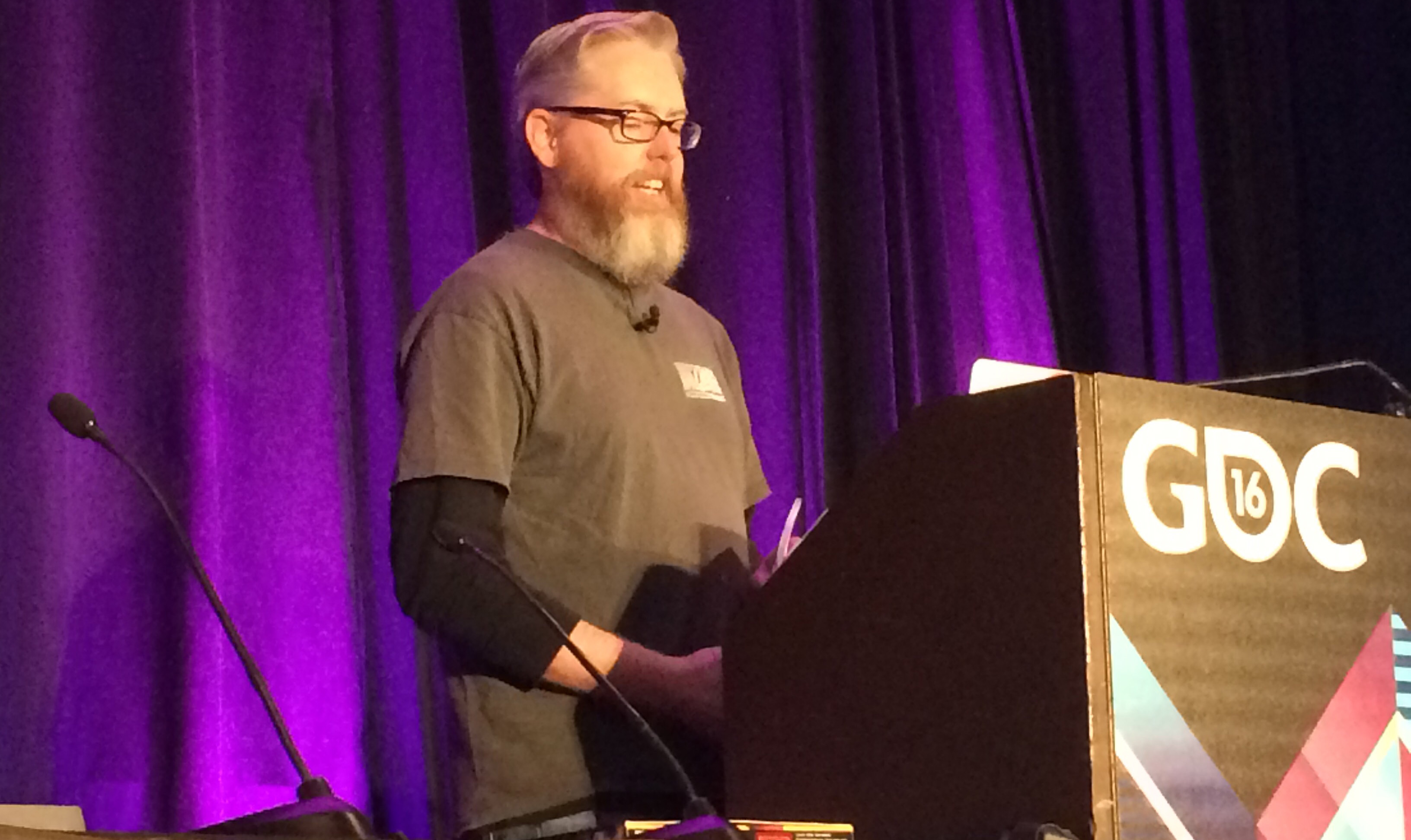Diablo's Battle.net originally ran on a single PC

One of the founders of Blizzard North, David Brevik, gave a postmortem of Diablo today at GDC in San Francisco, in which he shared an interesting tidbit about the nature of the ARPG forefather's then-unique networking.
"Battle.net ran on one computer," said Brevik. "Mike O’Brien [now president and co-founder of ArenaNet] is a networking super-genius. That guy is just amazing. There were a bunch of super, super smart people who worked at Blizzard at the time."
Because Diablo was was peer-to-peer, Battle.net running on a single system apparently wasn't a mistake or even an issue at launch—a surprising bit of history given the 'Error 37' debacle for Diablo III.
"I think that it was because we had people directly hook up with each other, the bandwidth... we weren't handling much of the bandwidth. They would come into the Battle.net, we would store the IP information and things like that, then send it off to other people. So all it really needed to do was get this connection, send it off to other people, and then run it like a chat room. Which is really not much, even back then it was not much processing that was needed. So it was able to run very, very quickly."
Although Brevik didn't share any of the issues on the networking side that players experienced, he did say that Blizzard hadn't at all anticipated the scale of cheating Diablo would be subject to, and how quickly it would spread.
"We didn't realize, it just didn't dawn on us, like... we knew people were going to be able to hack because it was peer-to-peer," admits Brevik, who says that Blizzard's attitude was that "If you want to cheat, go ahead and ruin your little game for yourself, that's fine, we don't really care. And then it came out and like, instantly, we were like, 'Oh my god, they can just upload the cheats and then everybody can cheat!' Oh my god, we didn't even think about that. So, obviously, the number one thing that we wanted to fix with Diablo is the cheating that happened. Going client-server for Diablo II was definitely necessary."
Check back soon for more insights and stories from Brevik's talk, including a surprising hat-tip to this very publication for Diablo's success.
The biggest gaming news, reviews and hardware deals
Keep up to date with the most important stories and the best deals, as picked by the PC Gamer team.

Evan's a hardcore FPS enthusiast who joined PC Gamer in 2008. After an era spent publishing reviews, news, and cover features, he now oversees editorial operations for PC Gamer worldwide, including setting policy, training, and editing stories written by the wider team. His most-played FPSes are CS:GO, Team Fortress 2, Team Fortress Classic, Rainbow Six Siege, and Arma 2. His first multiplayer FPS was Quake 2, played on serial LAN in his uncle's basement, the ideal conditions for instilling a lifelong fondness for fragging. Evan also leads production of the PC Gaming Show, the annual E3 showcase event dedicated to PC gaming.

